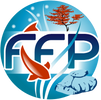|
|||
Koi Health and Information » Feeding Your Koi » Water Temperature and Feeding |
|||
|
|||
|
© 2001-2026
Waterford Gardens 74 E. Allendale Rd. Saddle River NJ 07458
• Powered By Sequential Logic
• Conditions of Use • Privacy Policy |

Fitz's Fish Ponds is the new and proud owner of FFP Saddle River.
It is our mission to carry the legacy of Waterford Gardens forward.
Call us: 908.420.9908 | Visit our website at www.fitzfishponds.com to learn more and shop online.
Call us: 908.420.9908 | Visit our website at www.fitzfishponds.com to learn more and shop online.